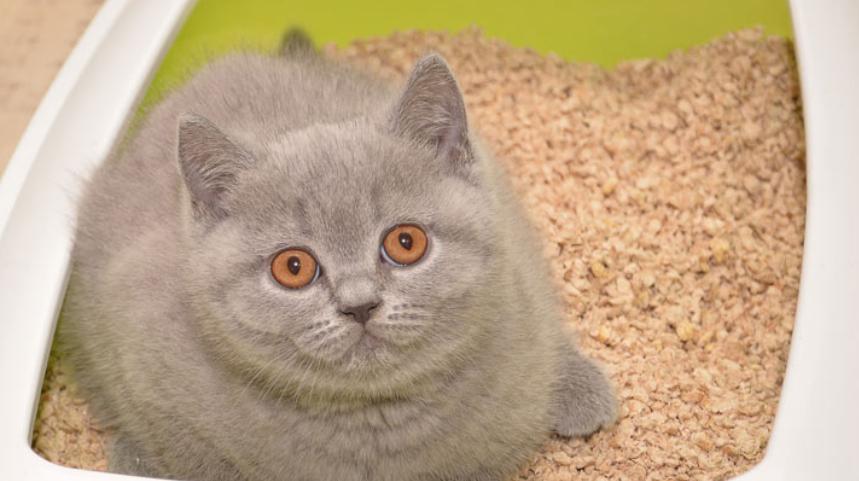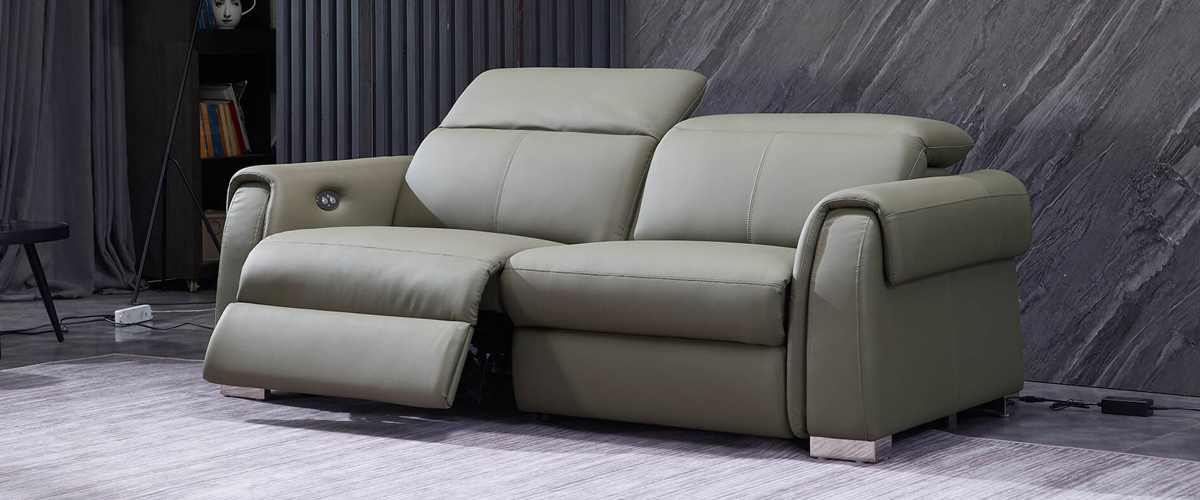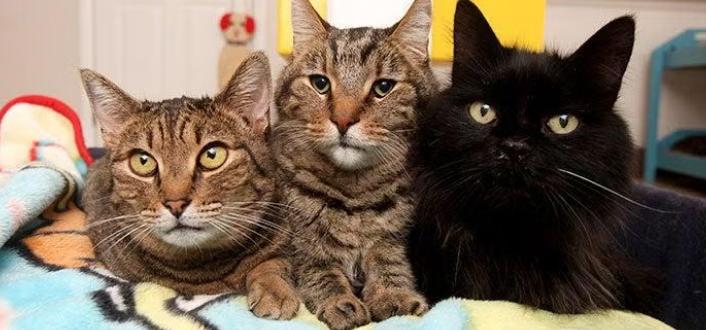5 Key Reasons Why Is My Cat Sleeping in the Litter Box
Finding your cat sleeping in the litter box can be puzzling and concerning. This behavior is often an indication that something is bothering your cat, whether it’s stress, a health issue, or something related to their environment. Understanding why is my cat sleeping in the litter box is key to solving the problem and ensuring your cat’s well-being. Let’s explore the five key reasons that could explain this unusual habit and what you can do to help.

Is Stress or Anxiety Causing Your Cat to Sleep in the Litter Box?
Stress and anxiety are two common causes for changes in cat behavior, and sleeping in the litter box could be a response to feeling overwhelmed. Cats are sensitive creatures, and even minor changes in their surroundings can trigger anxiety.
Common Stress Triggers for Cats
Cats are creatures of habit, and changes in their environment can lead to stress. Moving to a new home, changes in household dynamics, or even rearranging furniture can cause anxiety, leading your cat to seek the litter box as a safe retreat.
How Stress Leads to Litter Box Behavior
When cats feel anxious, they often retreat to enclosed, familiar places like their litter box. This is especially true if they associate the litter box with a safe, private space away from noise or disturbances.
Ways to Reduce Stress for Your Cat
To ease your cat’s stress, create a quiet, comforting area where they can retreat without feeling threatened. Use calming pheromone diffusers, and keep a consistent routine to reduce anxiety triggers.
Could Health Issues Be Behind Your Cat’s Litter Box Behavior?
Another reason for your cat sleeping in the litter box could be an underlying health issue. Cats tend to hide when they feel unwell, and the litter box may feel like a safe place when they are experiencing discomfort.
Identifying Medical Problems
Sleeping in the litter box can indicate health issues like urinary tract infections, kidney problems, or digestive issues. These conditions can make it uncomfortable for your cat to move or make them feel more secure near the box.
When to Visit the Veterinarian
If your cat is showing signs of discomfort, lethargy, or unusual behavior, it’s essential to visit the vet. They can run tests to determine whether a medical issue is causing the litter box behavior.
How Health Affects Cat Behavior
Cats often hide their symptoms, and unusual behaviors like sleeping in the litter box can be one of the few visible signs that something is wrong. Addressing health problems quickly will help prevent long-term issues and discomfort.
Is Your Cat Seeking Comfort or Warmth in the Litter Box?
Sometimes, your cat might be seeking comfort or warmth by staying in the litter box. This could be especially true if the box is located in a warm, cozy part of the house or if your cat feels more secure in a small, enclosed space.
Why Cats Seek Warm or Soft Spots
Cats often seek out warm, soft spots for comfort. If your cat’s litter box is in a warm area or contains soft litter, they might be drawn to it as a cozy place to sleep.
Litter Box as a Safe Space
In some cases, the litter box may feel like a secure, enclosed space for your cat, especially if they are feeling vulnerable or stressed. Cats instinctively look for spots where they can relax without feeling exposed.
Providing Alternative Comfort Zones
To redirect your cat away from the litter box, offer them a more attractive alternative, like a soft bed or a heated cat pad in a quiet corner. This gives them a cozy, safe spot without the need to use the litter box for sleep.
Is Your Cat Marking Territory or Showing Dominance?
In some cases, your cat might be using the litter box as a way to assert dominance or mark territory, especially if there are other cats in the household. This behavior is more common in multi-cat households where cats feel they need to claim resources.
Understanding Territorial Instincts
Cats are territorial animals, and some may claim the litter box as their personal domain, especially in multi-cat households. Sleeping in the box can be a way to mark their territory.
Litter Box as a Marker of Dominance
In homes with multiple cats, one cat might sleep in the litter box to assert dominance and control over a resource that’s important to them. This behavior is more common if there’s competition for resources.
How to Manage Territorial Behavior
To prevent territorial issues, ensure each cat has access to its own litter box. Adding extra litter boxes around the house can reduce the competition and help prevent dominance behavior.
Could a Dirty or Overcrowded Living Space Be the Problem?
If your cat’s living space is dirty, cluttered, or overcrowded, they may choose the litter box as a clean, undisturbed place to rest. Cats are very particular about their environment and may avoid areas that are too chaotic or messy.
Effects of a Messy Environment on Cats
A cluttered or dirty living space can make cats feel stressed, causing them to seek out the litter box as a clean, familiar spot. Cats are clean animals and may avoid areas that don’t meet their cleanliness standards.
Overcrowding and Litter Box Behavior
Overcrowded living spaces, especially with multiple cats, can lead to territorial disputes and force some cats to retreat to the litter box as a private space. They may feel it’s the only place they can rest undisturbed.
Creating a Clean and Comfortable Space for Your Cat
To encourage your cat to sleep elsewhere, make sure their environment is clean and free from clutter. Provide plenty of separate areas for each cat to relax, ensuring they feel safe and comfortable outside of the litter box.
How to Stop Your Cat from Sleeping in the Litter Box
Once you’ve identified why your cat is sleeping in the litter box, you can take steps to stop this behavior. The solution may involve improving their environment, managing stress, or addressing any health issues.
Step 1: Rule Out Health Problems
The first step is to rule out any health-related issues. Take your cat to the vet for a checkup to ensure that their behavior isn’t linked to a medical condition.
Step 2: Improve the Litter Box Environment
Ensure the litter box is clean and accessible but not too appealing as a sleeping spot. Consider switching to a different type of litter or moving the box to a less cozy location.
Step 3: Create a Comfortable Alternative Sleeping Area
Provide a warm, cozy alternative sleeping area for your cat. Adding a new bed, blanket, or soft cushion in a quiet area of your home can entice your cat to sleep in a more suitable place.

Conclusion
Understanding the reasons behind why is my cat sleeping in the litter box is the first step to solving the issue. Whether it’s stress, health problems, or territorial behavior, identifying the cause will help you take the appropriate steps to stop your cat from using the litter box as a resting place. By improving their environment, addressing health concerns, and providing a cozy alternative, you can ensure your cat feels safe and comfortable without resorting to the litter box for sleep.
FAQ
Why is my cat suddenly sleeping in the litter box?
Your cat may be sleeping in the litter box due to stress, health issues, or comfort. Addressing these causes can help you redirect their behavior.
Is it normal for older cats to sleep in the litter box?
Older cats may sleep in the litter box due to arthritis, mobility issues, or health problems. A vet checkup is recommended to rule out medical concerns.
How can I stop my cat from sleeping in the litter box?
To stop your cat from sleeping in the litter box, provide an alternative cozy spot, ensure the litter box is clean, and rule out any health or stress-related causes.


